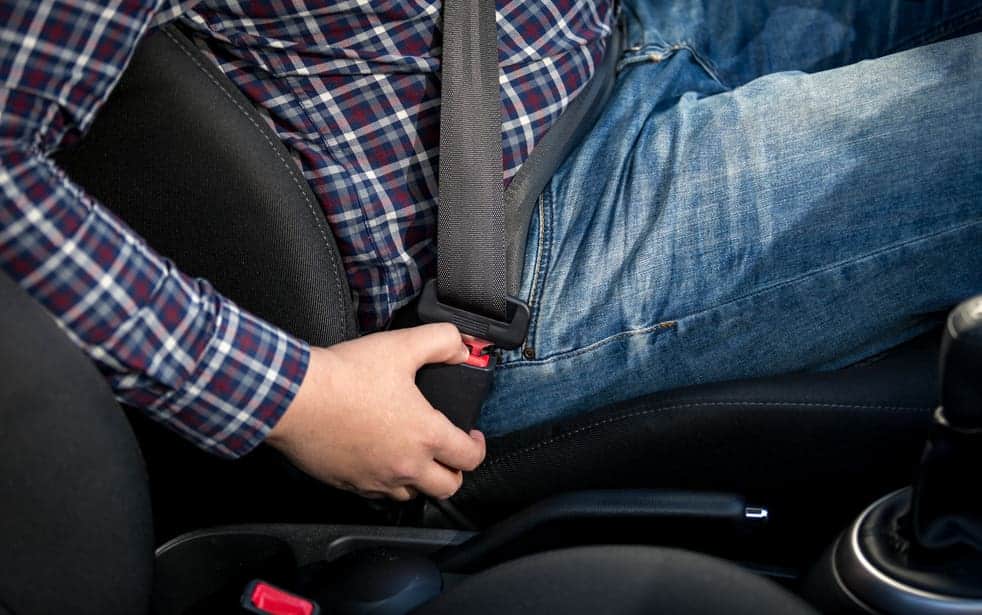Prescription medication can impair your ability to drive. Drugs that fall within this group are opioids, benzodiazepines, antidepressants, antipsychotics, and some antihistamines. When you combine prescription medication with alcohol or other substances, this might lead to increased impairment. It is important to read the labels and cautions on pharmaceutical packaging to comprehend the potential adverse effects. Even recommended medication can impair your driving. If you are required to take any medication, it is important to discuss the safety of driving with your healthcare specialist while you are taking the medication. Ignoring these risks can cause accidents, injuries, or other legal issues.

Types of Over-the-Counter Medications That Can Impair Your Ability to Drive Safely
The following prescription drugs can impair your ability to drive safely. Most medications have some or other effect on the body, and you should always follow directions accordingly.
Here are a few over-the-counter medications and other medications that affect your ability to drive motor vehicles:
Antidepressants (Depression Medications) – Antidepressants such as selective serotonin reuptake inhibitors and tricyclic antidepressants provide several possible hazards. These include cognitive and/or psychomotor impairment, which may limit a person’s ability to drive a car. Some people might not experience significant side effects. Others might find that their driving skills are affected, especially when they start other prescription drugs or when the dosage has been adjusted.
Opioids – A prescription drug, Opioids, typically used for pain management, also have adverse side effects. They are a very strong painkiller, and it is advised that you should not be driving for at least five days after you have started taking them. They cause drowsiness, slowed reaction times, and impaired coordination. This makes using a vehicle unsafe as you risk your and other people’s lives.
Anxiety Medications Like Alprazolam – Anxiety medications such as Benzodiazepines and alprazolam can impair your driving skills. It can increase the chances of a car accident, especially if you combine it with alcohol or other sedatives. It can cause drowsiness, dizziness, blurred vision, and poor judgment. The risk is greatest when you first start taking anxiety medication before you become accustomed to its effects.
Seizure Medications – Some seizure medications may cause drowsiness, dizziness, and coordination problems, impairing your driving ability. When you start lowering your anti-seizure medication, you should stop driving. If you intend to stop taking your anti-seizure medication, you should not be driving for at least 6 months, and there, you need to obtain medical fitness for driving from your healthcare provider.
Allergy Medicines and Nausea Medications – Medications that contain sedating antihistamines such as diphenhydramine (Benadryl) can cause drowsiness and impair cognitive functions. Antiemetics medicine that treats nausea, vomiting, and dizziness can cause drowsiness and impair driving ability. These effects can make driving unsafe, specifically when you combine them with other medication or with alcohol.
Sleeping Medications and other Insomnia Drugs – Driving is risky while using prescription insomnia drugs because they can leave you feeling drowsy and less aware the next day. People taking these drugs must wait until their sedative effects have completely subsided before operating a motor vehicle.
Antipsychotic Medications – Driving skills may be impacted by antipsychotic medication side effects such as fatigue, clouded vision, and poor judgment. Individuals should speak with their healthcare physician to determine if driving is safe while taking certain medications.
Stimulants – While stimulant drugs, such as those used to treat attention deficit hyperactivity disorder (ADHD), can help people with the disease become more focused and alert, they can also make people feel jittery and anxious and raise their heart rate. Driving ability may be affected by these effects, particularly at higher dosages.
Muscle Relaxants – Muscle relaxants can dangerously affect driving, producing sleepiness, dizziness, and decreased coordination. People using these drugs must be aware of their specific reactions and refrain from operating a vehicle if they feel impaired.
Loperamide – Although the main purpose of loperamide (Imodium) is to cure diarrhea, high dosages of the drug have the potential to penetrate the blood-brain barrier and induce depression of the central nervous system, which results in drowsiness and poor coordination. It is not advised to drive while under the influence of loperamide since it can be risky.
There are serious consequences related to driving when impaired, including a greater likelihood of injuries, crashes, and deaths. Medications with a prescription impairment might lead to reduced coordination, slower reaction times, and impaired judgment. Fines, license suspensions, and even incarceration are possible legal repercussions. Put safety first, and don’t operate a vehicle while intoxicated.
Frequently Asked Questions (FAQs) – Prescription Drugs
How long after taking these drugs can I drive?
The amount of time that passes after taking prescription medication before it is safe to drive varies based on several variables, such as the medication itself, the patient’s response, the dosage, and the presence or absence of other substances, including alcohol. It is best that you consult with your medical advisor to determine when would be the best time to drive after taking any prescription drugs.
How can I tell if it’s safe for me to drive?
Determining whether it is safe for you to drive depends on various aspects, such as:
· Reading and understanding medication labels and paying attention to warnings and side effects listed on the medication packaging, especially extended-release forms of medication.
· Discuss your medication’s potential effect on your driving with your healthcare provider or pharmacist.
· Monitor your symptoms.
· If you are uncertain about your driving ability, waiting until you feel completely clear-headed is always best before you get behind the wheel.
What should I do if a medication I’m taking is preventing me from driving safely?
If taking medicine makes it difficult for you to drive, talk to your doctor about possible substitutes or dosage changes. Consider non-drug therapies. Avoid driving until the effects wear off. Report any side effects. Prioritize safety by adopting other modes of transportation when necessary.
Navigating Legal Challenges: Expert Advice and Guidance
If you are facing legal concerns related to impaired driving caused by prescription medicines, contact Coluccio Law for competent advice. Schedule a free appointment today to learn about your rights and alternatives. Don’t go it alone in this complex scenario; let our skilled staff walk you through the legal process.



